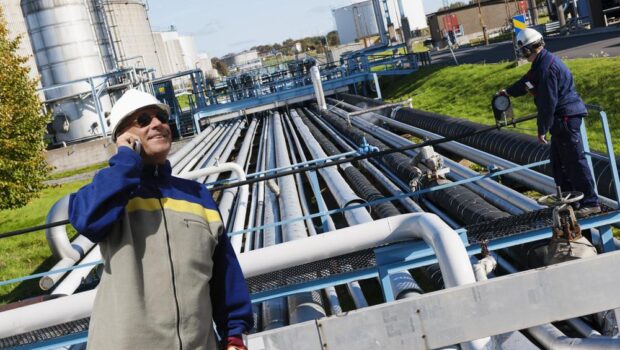The Petroleum Refining Technology Behind Products We Use Every Day
Petroleum refining is a complex and essential industrial process that plays a vital role in our everyday lives. It transforms crude oil, a naturally occurring fossil fuel, into a wide range of products we rely on daily. Petroleum refining technology provides everyday goods, from gasoline to plastics and pharmaceuticals. The multifaceted technology involves a series of refining steps to ensure the production of high-quality products while adhering to environmental and safety standards.
It Starts With Crude Oil
Crude oil, often called black gold, is a complex mixture of hydrocarbons, sulfur compounds, nitrogen compounds, and trace elements found beneath the earth’s surface. It is extracted from oil reservoirs and transported to refineries, where the magic of petroleum technology refining takes place. The primary objective of refining is to separate and convert raw materials into valuable products, which can be likened to turning crude oil into a versatile chemical factory.
One of the initial refining steps is distillation, which separates crude oil into different chemicals based on their boiling points. The distillation tower, a crude oil unit or a fractionating column, is a towering structure hallmark of any refinery. Crude oil is heated, and as it vaporizes, it rises through the distillation tower, separating or fractioning the chemicals. Diesel fuel is one of the least refined fuel products. According to the Department of Energy, diesel fuel contains about 10% more energy than gasoline, yet it is less refined. Diesel-fueled vehicles go about 35% farther on a gallon.
Distillation and Hydrotreating
We briefly talked about distillation technology to refine petroleum, but it is not the only refining process. Different petroleum products require different refining techniques to achieve the final product. Besides fuels like diesel, petroleum refining technology is used to create a plethora of petrochemicals to create everyday products. For example, asphalt shingles are a petroleum-based product.
According to the Roofers Guild, asphalt shingle roofs offer a return of about 62%. An essential element of asphalt shingle production is hydrotreating. Hydrotreating is a process that is used to refine petroleum. This involves treating raw crude material with hydrogen to remove impurities like sulfur, nitrogen, and metals without getting too technical. This helps produce cleaner petrochemicals that can be used to manufacture things like asphalt shingles.
Other Technologies
Other types of technology are deployed to refine crude oil into usable chemicals. Again, asphalt is a good example. According to The Spruce, an asphalt driveway costs about five to seven dollars a square foot to install, but it starts off as a crude oil product. The end game, from crude refining to material production, is affected by the type of technology used to process the crude.
Coking is a thermal cracking process that converts heavy residues into valuable products like petroleum coke and gas oil. Solvent extraction processes separate valuable components, such as aromatics or lube oil base stocks, from other fractions. Desulfurization technology reduces the sulfur content in various fractions to meet environmental regulations and improve air quality.
The type of technology used in petroleum product production largely depends on what the material will be used for. Carbon Capture and Utilization (CCU) technology is a new technology that some modern refineries use to capture carbon emissions to reduce environmental impact. Many different types of technology are used to take crude oil to a usable product.
A litany of products come from crude oil production. Look around your home, and you will find a wide range of items that come from petroleum. Plastic grocery bags, makeup, electronics, medical equipment, and so much more have a petroleum base from petroleum technology. Learn more today.












